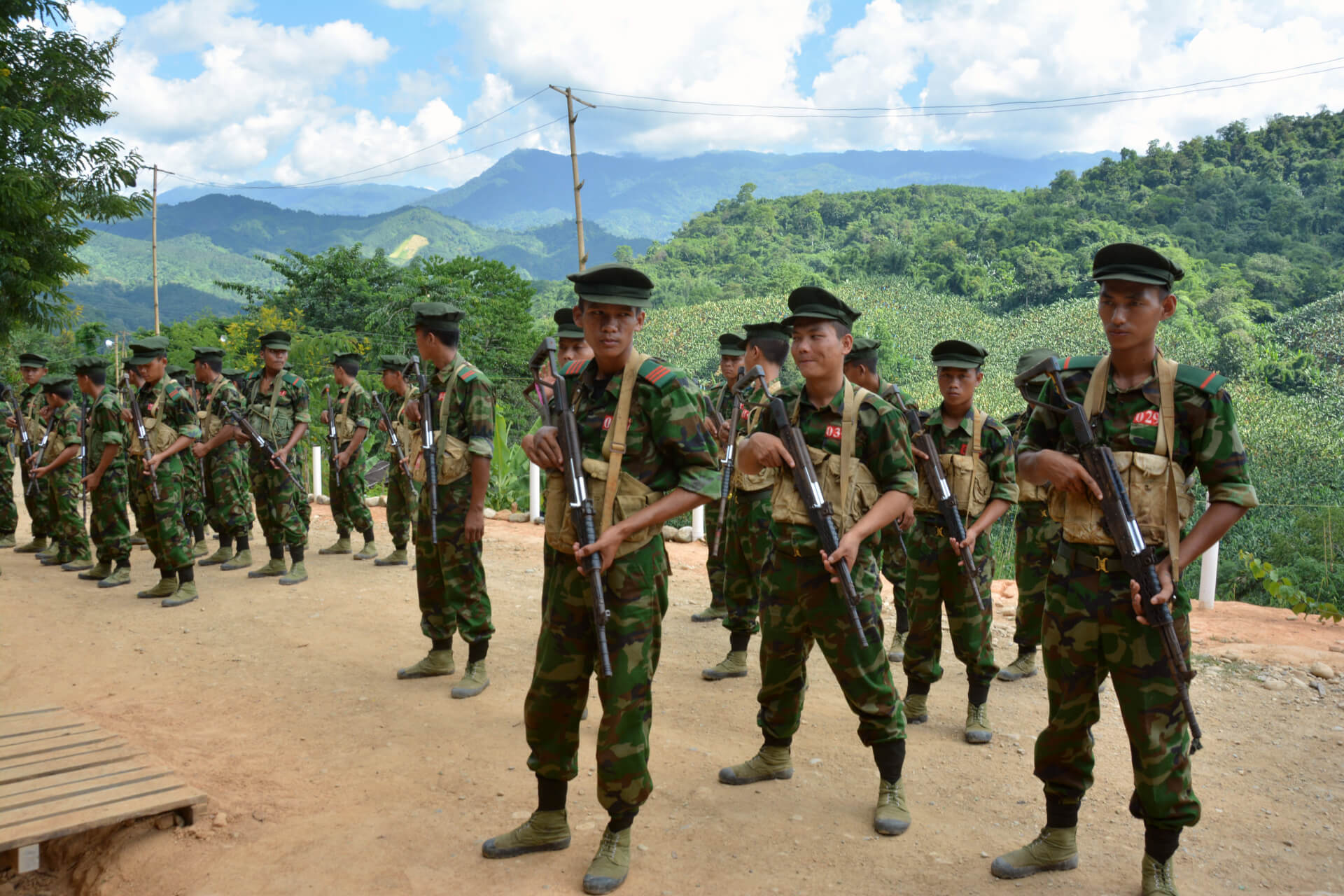A new report titled ‘Taking Aim At The Tatmadaw: The New Armed Resistance To Myanmar’s Coup’ by the International Crisis Group (ICG), a non-profit, non-governmental think tank that seeks to prevent conflict, elaborates on the increasing lawlessness and chaos in Myanmar since the February 1 military coup. The report details an increase in armed militias in both rural and urban settings and in violence “in response to regime killings of demonstrators.”
The report, published on Monday, highlights that some of these “lightly armed bands,” with hunting rifles and other makeshift weapons, are gaining access to better weaponry and inflicted severe casualties on the Burmese military, also known as the Tatmadaw. In response, the Tatmadaw has indiscriminately attacked populated areas, using artillery, airstrikes, and helicopter gunships.
“The regime’s heavy-handed, indiscriminate retaliation has displaced tens of thousands of men, women and children. Local networks and humanitarian agencies are unable to adequately assist these people due to security and access restrictions, including military arrests, confiscation of supplies and killings of those trying to deliver aid,” it states.
The report calls on international actors, including the United Nations Security Council (UNSC), to push Myanmar’s military regime, led by Senior General Min Aung Hlaing, “to respect its legal obligations regarding the principles of proportionality and distinction, which its counter-insurgency strategy deliberately violates, and allow humanitarian access to all displaced people.” It also called on the newly created militias to refrain from committing acts of abuse, mainly killing detainees.
It further revealed that the Tatmadaw has been employing the “four cuts” counter-insurgency strategy, which is “a cruel approach that deliberately targets civilians to deprive insurgents of food, funds, recruits, and intelligence on troop movements.” Furthermore, it stated that the military’s attacks on populated areas, looting of food stores, and denial of relief supplies, are in “clear violation” of international humanitarian law.
The report recommended that security forces must “stop impeding humanitarian access to displaced populations,” and foreign actors must “do what they can” to ensure accountability of the regime for violations of international law. It added that the National Unity Government (NUG) should “take steps to strengthen and further disseminate its military code of conduct [...] even if it does not have command and control of these groups.”
The latest report comes after the Association of Southeast Asian Nations (ASEAN) met in Jakarta in April and agreed to a five-point consensus on ending Myanmar’s political crisis, including an immediate end to the violence and the appointment of an ASEAN envoy to resolve the problem. Despite several international calls and sanctions to achieve peace and stability, the Assistance Association for Political Prisoners (AAPP) reported that the security forces had killed over 800 people since Aung San Suu Kyi’s democratically elected National League for Democracy (NLD) government was overthrown by the military on February 1 over unverified claims of voter fraud in the November general election. The organisation has warned that the actual civilian death toll is probably significantly higher.
The findings suggest that calls for peace continue to go unanswered as violence continues in the country.
SUMMARY: International Crisis Group’s Report on the Myanmar Crisis
A new report by the International Crisis Group details worsening lawlessness and chaos in Myanmar as armed militias proliferate in both rural and urban areas.
June 28, 2021

SOURCE: P. VRIEZE/VOA
